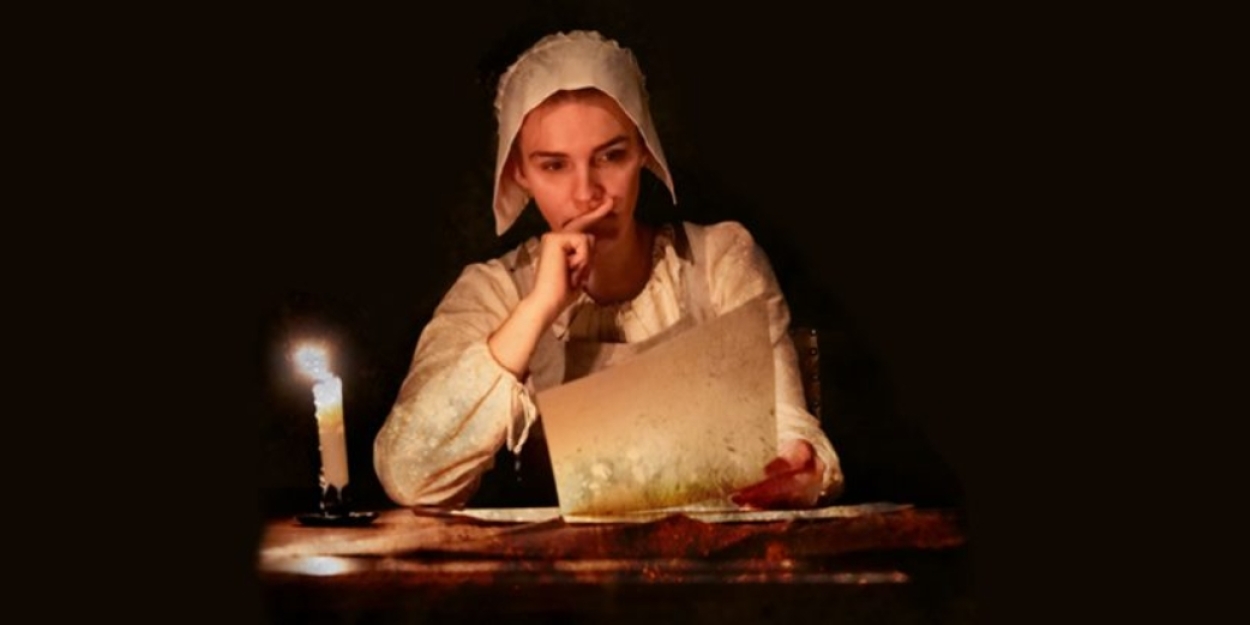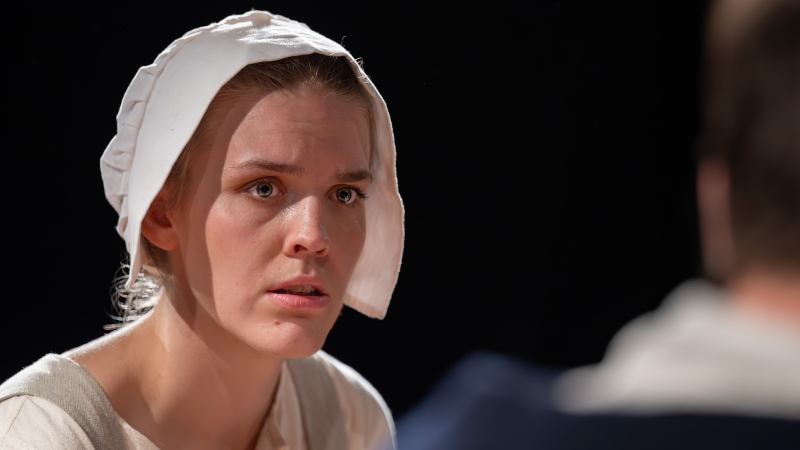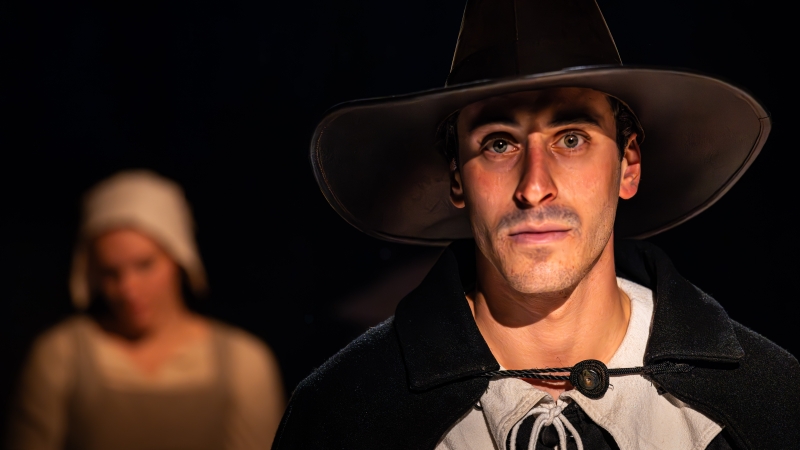Review: THE UNGODLY, Southwark Playhouse
Historically interesting, but overly long and bland.

![]() Halfway through the 17th Century, England was living the most extreme stage of the witch trials. Deep in the trenches, between irrational accusations and petty retaliations, women were being incriminated for simply looking at someone weird.
Halfway through the 17th Century, England was living the most extreme stage of the witch trials. Deep in the trenches, between irrational accusations and petty retaliations, women were being incriminated for simply looking at someone weird.
Joanna Carrick’s play follows Susan’s family, step-sister of self-appointed Witchfinder General Matthew Hopkins, as she and her husband Richard gradually start to get involved in the movement. When whispers break and their household is suspected of being infiltrated by none other than Satan himself, will she blindly follow the dogmas preached by her step-brother or seek out the truth behind the terror? In a community gutted by the fear of the unknown and ruled by bible-bashing men of dubious authority, what does it take to rise up with rationality among the rubbles of ignorance?
There’s a number of compelling sides to Carrick’s script, but it ultimately feels over-written, under-directed, and over-performed. The writer-director opts for a rather naturalistic vision and the narrative is ostensibly imbued with detailed historical research; the factual study sets the scene and informs the world-building aspect of the piece, but the major lack of a hook stunts the ultimate outcome.
Though the account is mildly interesting on a fictional level, there is no atmosphere, no tension, and no urgency. The performances are intense, sometimes overly so, but the occasionally tedious pacing fails to push us to become truly invested into these people. It’s also inordinately long for what it is.

The core of the story lies in the fact that Susan (Nadia Jackson) and Richard (Christopher Ashman) keep losing their infants while other natural events hit their small village of Mistley. After some love-struck begging from Ashman’s wealthy farmer, Jackson’s Susan finally agrees to marry him. They’re quite levelheaded and rational, removed from gossip, and far from superstitious. But Vincent Moisy’s Matthew infiltrates their subconscious in the most vulnerable of moments. His performance carries the show: Moisy goes from cowering and stuttering pitifully to become pious and self-righteous in an undetectable coup de main. He exploits their profound grief and uses it to, in essence, give significance to his own existence.
It’s a shame that the dialectic of the writing runs in circles with the same notions being offered in redundant expositional dialogue. Perhaps a stronger direction that challenges the material and offers a different perspective might have helped this unfortunately begrudging slog. It doesn’t help that the roles are mostly defined by the same three features.
When they’re not reiterating their findings by rereading the confessions that Matthew tortured out of innocent women, Susan is constantly sweeping, or dusting, or folding clothes, or cleaning after the men and Richard is always finding a way to add levity to the situation. Between the mournings of their progeny and the bland interrogation of Rei Mordue’s pitiful young girl, nothing much happens. We hear of cows dying and other kids succumbing to suspicious maladies (only half of the infants born in the 17th century reached the age of 18), but it’s all hearsay. Carrick tells without showing.

She could definitely shape this into a worldly allegory that denounces the contemporary state of society, highlighting our alarming tendency to believe outlandish assumptions without doing any probing of our own. The idle following of confident leaders that appear to give meaning to our lives is nothing new, after all: it happens now, just as it happened in the 1600s. The Ungodly, however, seems to be too concerned with a tangible sentiment of immediacy that binds the storytelling.
Regrettably, the tale and the relationship between the characters aren’t enough to have us on the edge of our seat. In a landscape marked by the occasional oversaturation of witchy fiction, we need more to actively care.
The Ungodly runs at Southwark Playhouse until 16 November.
Photo credits: Bernie Totten
Reader Reviews
Videos

